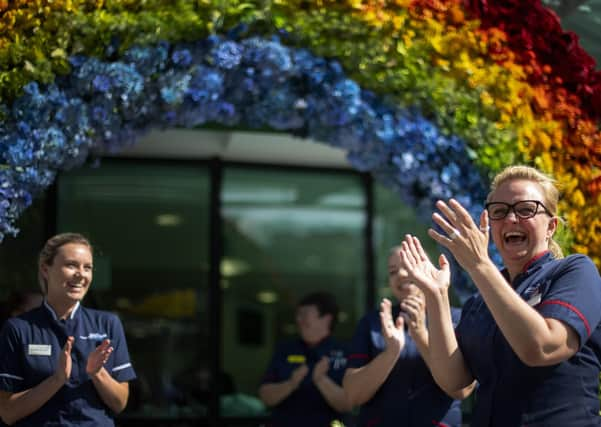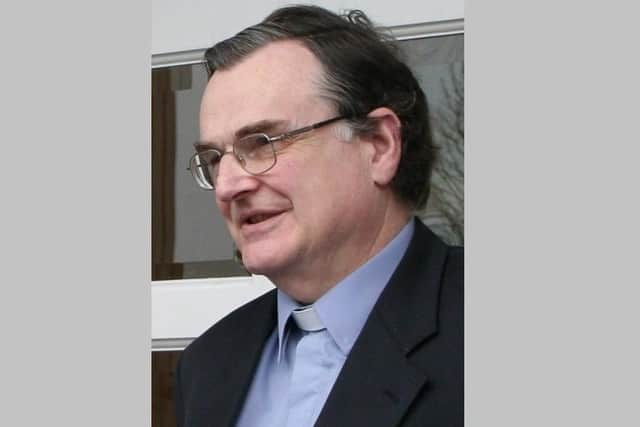This virus has taken lives and broken hearts – here are four lessons we can learn from it


There are immense ethical dimensions. Lives are at stake. The coronavirus Covid-19, we are told, normally causes a relatively mild illness, with some people perhaps not even having realised they have had it.
Then again, it can be the opposite, with the potential to create medical complications that can be life-threatening. Boris Johnson has spoken of how it almost took his own life.
Advertisement
Hide AdAdvertisement
Hide AdThe virus has, indeed, already taken the lives of so many people in particularly heartbreaking ways.


The slogan ‘Stay home, protect our NHS, save lives’ itself indicates that saving lives depends on protecting the NHS.
A healthy economic life in any nation is what makes a good healthcare system possible in the first place, not least when it comes to sophisticated medical equipment for diagnosing and treating patients.
Lives do come first and part of that equation is the fact that saving lives includes maintaining an economy that enables adequate healthcare.
Advertisement
Hide AdAdvertisement
Hide AdThis is the kind of fine balancing act in which policymakers must engage as they look forward from now.
Yet, the ethical issues don’t stop there.
For example, what about a mobile phone app that tracks everyone’s movements so that if one person is found to have the virus, others who have been in proximity to that person can be alerted? Is that an acceptable degree of mass surveillance?
Who would actually do it? The government or an independent charitable organisation? How long would records be kept? Could information on the app be handed over to the police for the purposes of a criminal investigation?
Then again, face masks. It is generally understood that the purpose of their use by the general public would mainly be to hinder individuals, perhaps who are asymptomatic, from passing on the virus, rather than to protect wearers from being infected by others around them.
Advertisement
Hide AdAdvertisement
Hide AdThe purpose of wearing masks therefore is a communitarian one. It is not to protect ‘me’, but is to protect ‘you’. Yet, how long might such a requirement last? And in what settings?
The questions go on, and on.
Another example is the issue of international aid. While there will be those who take the view that ‘charity begins at home’, it is an established norm of human affairs that the richer nations help the poorer ones, even if there will always be more that the more prosperous could do.
In a ‘virtual’ G7 summit on April 16, at which the UK was represented by Foreign Secretary Dominic Raab in the Prime Minster’s absence, leaders discussed the particular risk that Covid-19 poses to developing nations and agreed on the need to fight the coronavirus in every country.
It was heartening to note that even before the G7 meeting, on April 12, the UK government announced a £200m package of support for charities and international organisations helping to reduce mass infections in developing countries where healthcare systems are fundamentally inadequate.
Advertisement
Hide AdAdvertisement
Hide AdIt was pointed out that health experts had identified the weakness of developing countries’ healthcare systems as one of the biggest risks to the global spread of the virus, having also warned that leaving the coronavirus to spread in developing countries could lead to it re-emerging in the UK later.
So the aid allocated in this way will not only help the poorer nations but is also in the best interests of the more prosperous. We live in a truly interconnected world and that interconnectedness means we are all interdependent in different ways.
Yet, quite apart from all such questions, there are surely some deeply ethical lessons that the current crisis can teach us all. Four are worth highlighting.
First, we are learning about our personal and local interdependence and that we are not all simply individuals. We really are also a community and it is vital that we tend to the health of the community spirit.
Advertisement
Hide AdAdvertisement
Hide AdSecond, we are learning that family life is a great gift. The experience of not being able to meet with close family members has surely emphasised how important those bonds really are.
Third, there has been a new realisation of the beauty of creation. Many now have time to “stand and stare”, as the Welsh poet W.H. Davies put it. That also means time to reflect on our stewardship of creation.
The European Space Agency reports that the Copernicus Sentinel-5P satellite has recently mapped air pollution across Europe and China, revealing “a significant drop” in concentrations of nitrogen dioxide, which results from burning fossil fuels, coinciding with the strict quarantine measures.
Finally, as far as the churches are concerned, having their buildings closed for worship has led to alternative technological approaches. Those approaches are not as desirable as congregations actually meeting, but they do emphasise how important it is to worshippers actually to come together.
We certainly could have done without Covid-19. Yet, if it has lessons to teach we will do well to heed them.
l Canon Ian Ellis is a former editor of The Church of Ireland Gazette